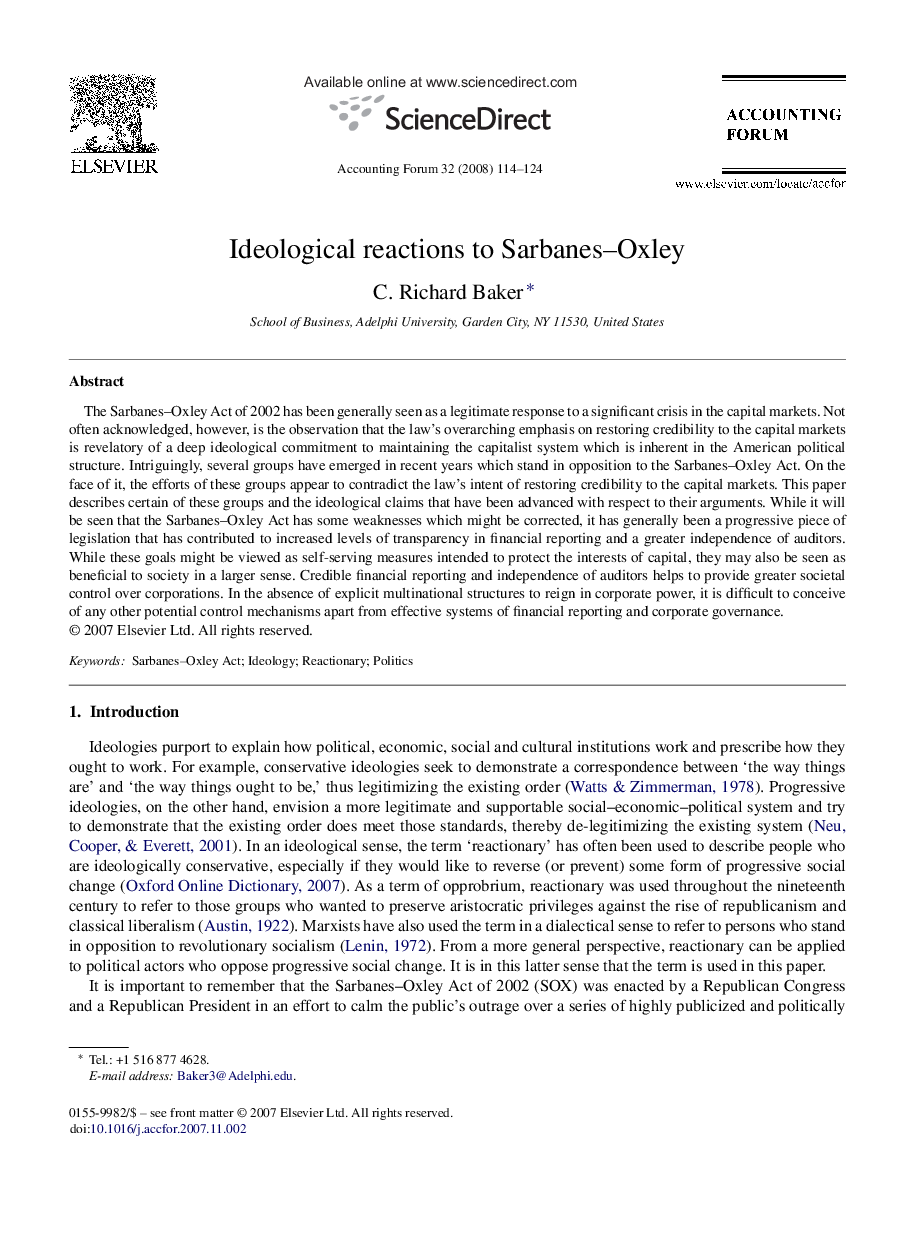| Article ID | Journal | Published Year | Pages | File Type |
|---|---|---|---|---|
| 1003819 | Accounting Forum | 2008 | 11 Pages |
The Sarbanes–Oxley Act of 2002 has been generally seen as a legitimate response to a significant crisis in the capital markets. Not often acknowledged, however, is the observation that the law's overarching emphasis on restoring credibility to the capital markets is revelatory of a deep ideological commitment to maintaining the capitalist system which is inherent in the American political structure. Intriguingly, several groups have emerged in recent years which stand in opposition to the Sarbanes–Oxley Act. On the face of it, the efforts of these groups appear to contradict the law's intent of restoring credibility to the capital markets. This paper describes certain of these groups and the ideological claims that have been advanced with respect to their arguments. While it will be seen that the Sarbanes–Oxley Act has some weaknesses which might be corrected, it has generally been a progressive piece of legislation that has contributed to increased levels of transparency in financial reporting and a greater independence of auditors. While these goals might be viewed as self-serving measures intended to protect the interests of capital, they may also be seen as beneficial to society in a larger sense. Credible financial reporting and independence of auditors helps to provide greater societal control over corporations. In the absence of explicit multinational structures to reign in corporate power, it is difficult to conceive of any other potential control mechanisms apart from effective systems of financial reporting and corporate governance.
